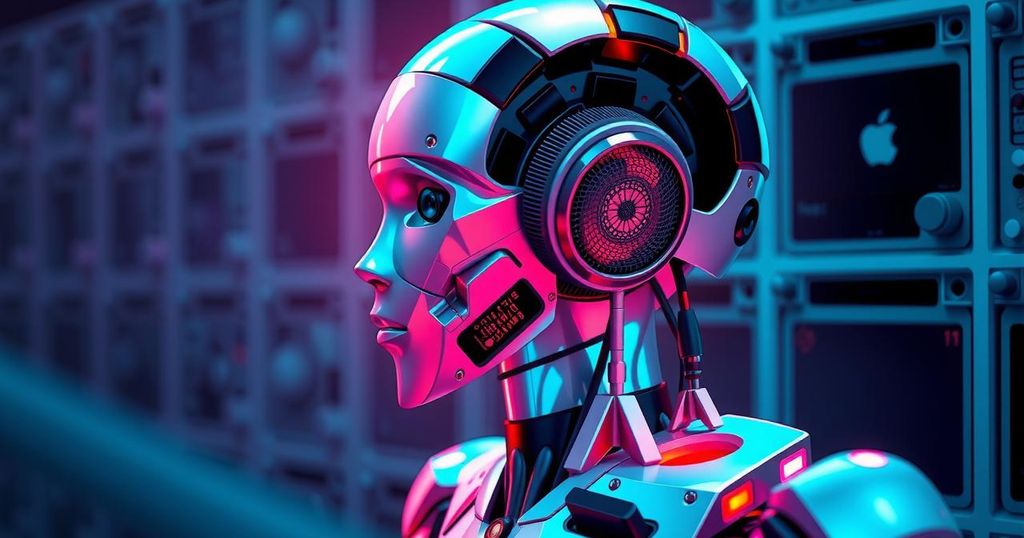How AI Is Revolutionizing Music Technology and Trends
AI is revolutionizing the music industry by automating tasks, enhancing creativity, and personalizing experiences. Traditional formats like vinyl are seeing a resurgence alongside digital platforms. Innovations in music technology, including AI-powered tools for creation, production, and distribution, are reshaping how music is experienced and consumed, making it a vibrant, diverse landscape.
Artificial Intelligence (AI) is reshaping the music landscape like a brush on a canvas, introducing innovative ways to compose, produce, and experience music. As AI permeates the industry, it automates intricate tasks, thereby unlocking fresh creative opportunities. From crafting original tracks to analyzing listening habits for personalization, AI is revolutionizing how music is conceived and consumed. The rise of AI tools has sparked trends such as the marriage between nostalgic formats like vinyl and futuristic streaming platforms, creating a vibrant and eclectic musical tapestry that resonates with diverse audiences.
In today’s music technology scene, we witness many fascinating developments. Traditional formats like vinyl and cassettes have made a surprising comeback despite the digital age, showing a beautiful duality in music consumption. Artists are also experimenting with genres, fusing styles and creating novel sounds that keep listeners on their toes. AI too plays a vital role, assisting musicians in crafting tracks, providing insightful suggestions, and even mastering their sound with unprecedented finesse.
The AI-influenced landscape extends to music distribution and consumption, where personalized recommendations from streaming services enrich the listener’s journey. Platforms utilize sophisticated algorithms to curate tailored playlists based on individual preferences, ensuring each musical encounter is unique. Moreover, AI-generated visuals, like stunning album covers, complement the auditory experience, making music not just a sound experience but a feast for the eyes as well.
Live performances now resonate with AI’s touch: imagine concerts illuminated by interactive visuals and personalized light shows that respond to the music in real-time. Further, in the realm of education, AI tools are transforming how aspiring musicians learn, providing feedback and adapting lessons to individual needs. With AI enhancing rights management, tracking usage and protecting artists more efficiently, its impact is indeed profound.
With the rise of music streaming giants like Spotify and Qobuz, listeners have on-demand access to an ocean of tracks. These platforms not only curate vast catalogs but also shape the royalty landscape, compelling artists to navigate this new economy with savvy marketing and engagement strategies. Simultaneously, social media has emerged as a vital promotional avenue, enabling artists to connect directly with fans and build their presence in a playful, interactive manner.
As technology continues to evolve, the global music scene flourishes, allowing artists from every corner of the globe to share their unique sounds with wider audiences. Whether it’s K-pop from Korea or Latin rhythms from Brazil, each artist’s influence is amplified through streaming and social media. This interconnectedness fosters a rich cultural exchange, making the music landscape more diversified and vibrant than ever before.
In a transforming music industry driven by technology, AI is at the forefront, altering various facets from composition to consumption. As new tools arise, musicians are empowered to explore creativity previously thought unattainable. This revolution influences how music is produced, shared, and enjoyed, encapsulating the spirit of innovation that defines modern creativity. The coexistence of physical formats and the digital realm highlights the multifaceted nature of contemporary music consumption, appealing to a spectrum of tastes and preferences.
AI is fundamentally transforming the music industry, making creation more accessible and personalized while breathing new life into traditional formats. With continuous innovations in technology, artists can reach audiences like never before, and listeners enjoy richer experiences. The blending of traditional and modern elements, coupled with AI advancements, presents an exciting future for both creators and consumers in the ever-evolving soundscape of music.
Original Source: 9meters.com




Post Comment